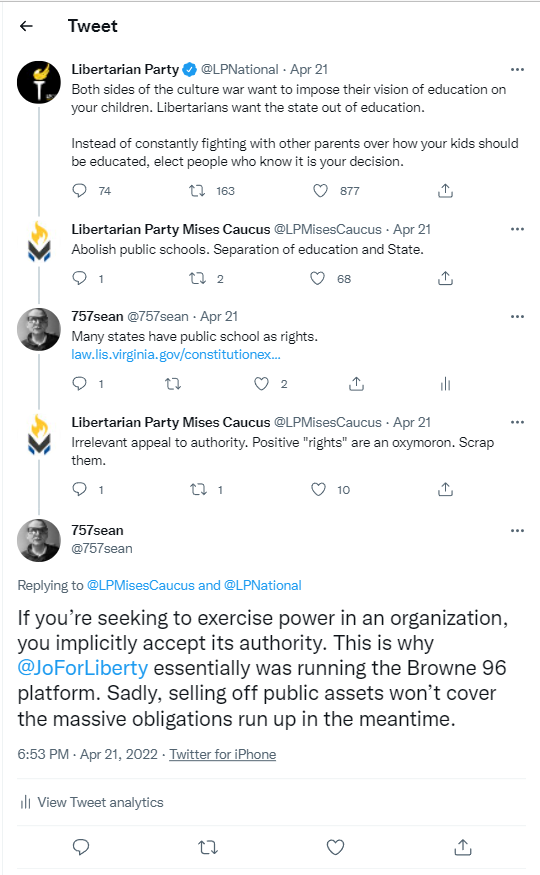Writing this kind of in reaction to what I heard with some of the things with the Libertarian Party takeover this past weekend.
Yeah, I can’t hang with those sorts of folks. I am not going to share those sorts of personal details.
I wrote that last sentence kind of in the young-and-healthy mindset. I just got an email notice reminding me that it’s my twentieth anniversary as a LiveJournal user. Um. Yeah. I hadn’t written anything since 2003.
Obviously, I’ve been feeding this writing compulsion for a long time.
But back to the point, one of the former Reason editors, maybe Virginia Postrel, had a column (which I can’t find, unfortunately) complaining about the marijuana odor swirling around somewhere she was (I think SoCal).
I’ve never smoked marijuana. I worked in radio for how many years? I have multiple sclerosis. I’ve never smoked weed. I don’t like the odor. I’m skeptical about In my current situation, even though I am mildly curious about the neurological effects of cannaboids, and other psychoactive chemicals, I don’t partake.
That’s my choice.
To me, that’s the quintessence of Libertarianism. I can do what I want, and if I’m really not affecting anyone else by doing it, whatever.
But it’s also none of your business, and I don’t feel any urge to tell you about it.
I didn’t read too deeply into my old LJ, but I’m almost certain that there’s no discussion of executory activity.
I really don’t need, or want, to know about the last time you met physical needs.
It’s not me. I don’t need to know.
And, despite the fact that I wasn’t informed on the latest podcast that being immodest is Libertarian, it’s how I operate.
It’s how I’ve always operated.
But means I’m the enemy. Whatever.
The sorts of things I’ve heard are things that would absolutely have mortified me if others knew about them.
But it’s actually none of their business, either.
I don’t even like to share some of those things with my wife.
Does that make me an evil statist? Well, tune in to the guy who’s never made a payroll, or written something longer than a comedy sketch and find out.
But I’m not just going to rage quit. It’s not what I do. I just leave.
I hope you find satisfaction with whatever is your choice when you get Marrou-level vote totals thirty-plus years down the road.

